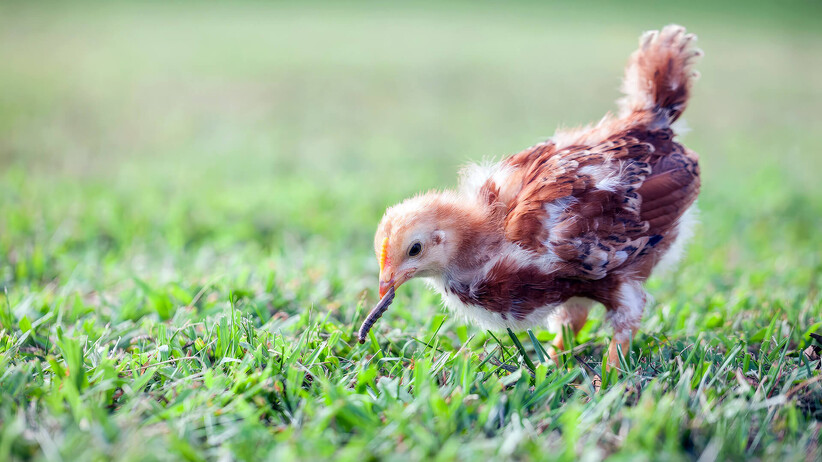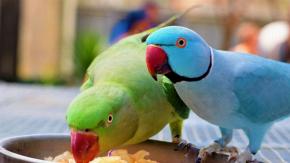You know how plucky chickens can run around and jump over their pens if you don’t build proper structures.
So, if you find the usually inquisitive birds behaving lethargically or shaking their heads and gasping, there might be a worm infestation. While some worms are common and don’t cause much harm, the problem arises when the infestation overburdens the birds.
In severe cases, this can result in serious illness, damage to the internal organs and even death. But through simple techniques and proactive measures, you can keep the birds healthy and guarantee no drop in egg production.
Are There Worm Infestations?
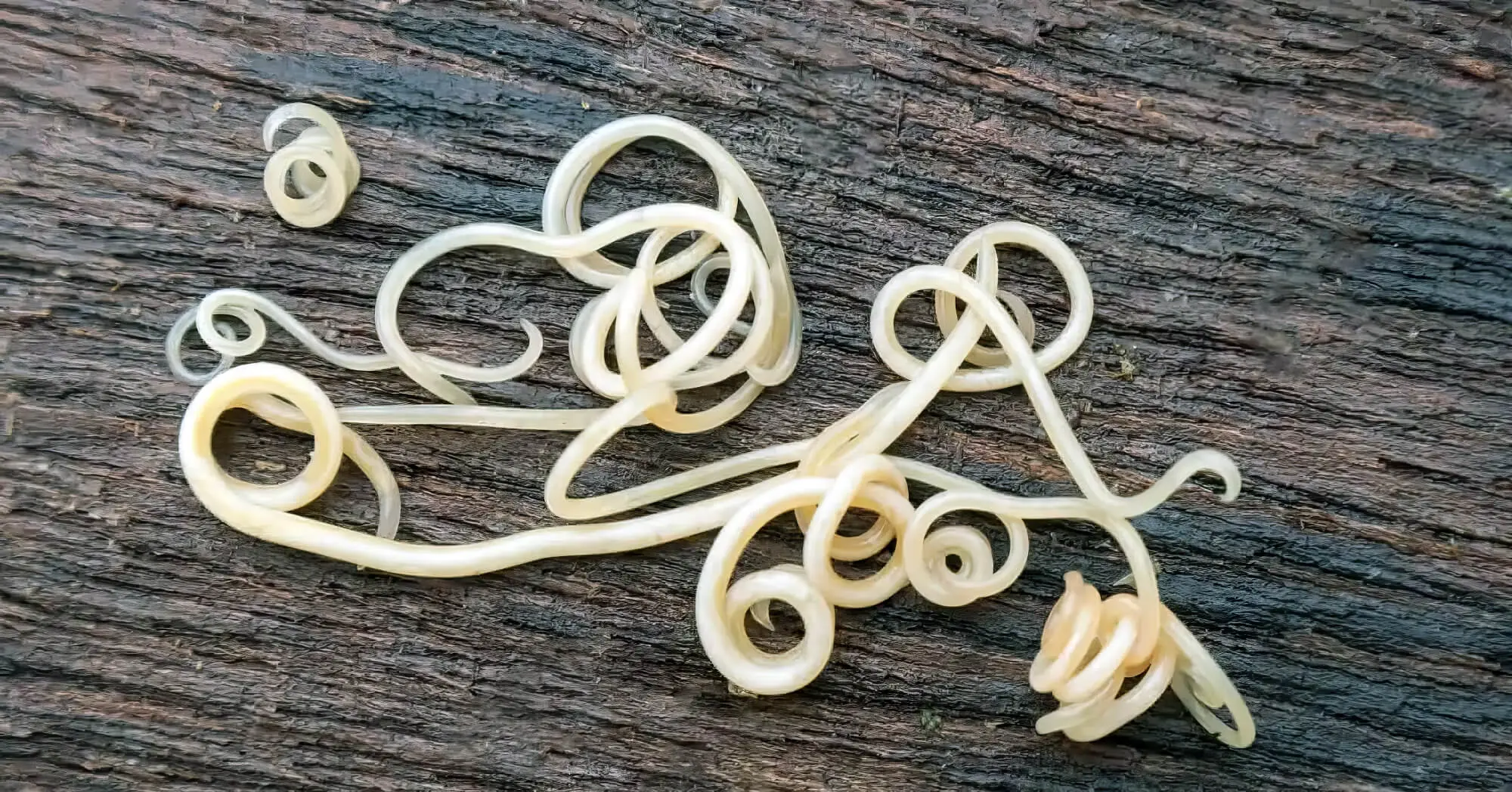
The first step to answering the question ‘should you worm your chickens?’ is finding out if there are worms in the chickens’ feed or droppings. It’s common to find poultry eating earthworms, so most people are concerned about how often they should worm chickens.
It mostly comes down to personal preference, but there are a few tell-tale signs you must know about. For instance, you must start worming chickens when there are worms in chickens’ droppings, pointing to a heavy-worm burden.
In some cases, the worm eggs are not visible to the naked eye, but they get mixed with the chicken feed and can affect a healthy chicken. This usually impacts the chickens’ immune system, damaging the gut lining while preventing your poultry from getting adequate nutrients.
You should note something is wrong after spotting green droppings; the chickens might lose weight and fail to lay adequate eggs.
Common Worms In Chickens
1. Cecal Worms
Heterakis gallinae or cecal worms are common and not very harmful to poultry. They are found in the ceca or the two intestinal branches that end in little pouches. But what makes these 5-inch-long worms dangerous is they carry the ‘blackhead’ parasite, which affects chickens and turkeys.
If the blackhead reaches the intestine, it causes yellow droppings and inflammation. Moreover, if the cecal worm reaches the liver, it can result in severe internal damage, causing death. It’s imperative to prevent worms in such instances since there’s no known treatment for blackhead parasites apart from fenbendazole.
2. Capillary Worms
Any professional chicken vet can easily spot capillary worms due to their slender and thin body structure. These are some of the smallest worms, measuring 1.5 cm, also known as threadworms or hairworms. However, they can easily affect chicken health and breed amongst the crops for easy entry into the body.
They also live off earthworms as part of their life cycle, which leads to diarrhoea, weight loss, anaemia, appetite loss, and depression in hens.
3. Roundworms
The most common parasitic worm is the roundworm that infects backyard chickens readily. These worms can get up to 7 cm long and infect the small intestine by burrowing into the gut.
Infested chickens face issues with inflammation and proper absorption of nutrients due to the blockage. As a result, these intestinal worms can result in diarrhoea, weight loss, anaemia, and reduced egg production.
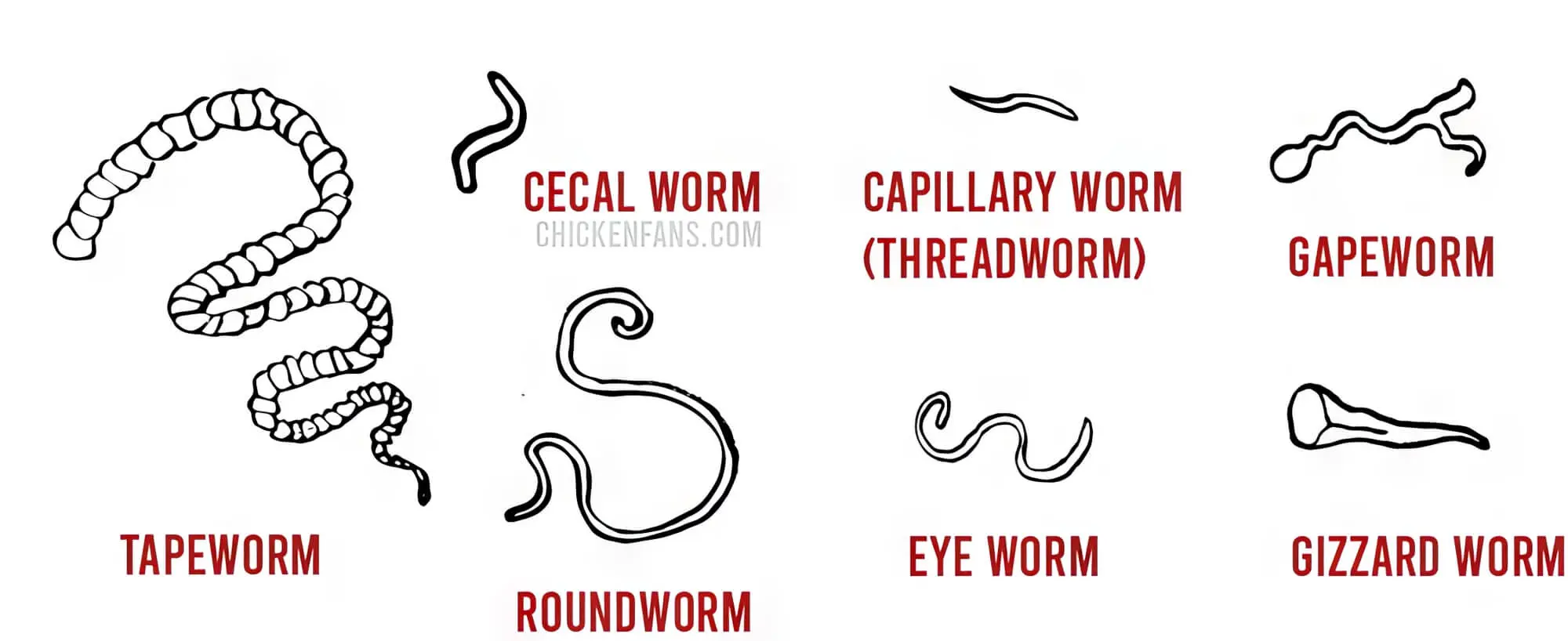
4. Gapeworm
You should be worried about gape-worms, which are uncommon among internal parasites. These worms are found in the trachea; without worm control, they cause a chicken to gasp and shake its head.
If you spot a chicken repeatedly opening its mouth, stretching its neck and coughing, know it’s trying to dislodge the gapeworm stuck in the windpipe. The infected bird will further suffer from respiratory diseases; you can spot these red, fork-like worms with the naked eye.
In most cases, you must treat chickens for three weeks to dislodge the worms transmitted by beetles, slugs, earthworms and flies.
5. Tapeworm
Tapeworms are commonly found in the intestines of chickens but rarely affect poultry. But when they do, it can be challenging to control transmission since beetles, flies, earthworms, slugs, etc., carry them. Moreover, if a chicken eats infected droppings, it increases the chances of preventing or treating tapeworms.
You should immediately consult a vet who will administer Valbazen and other drugs like fenbendazole and levamisole.
How Do Chickens Get A Worm Infestation?
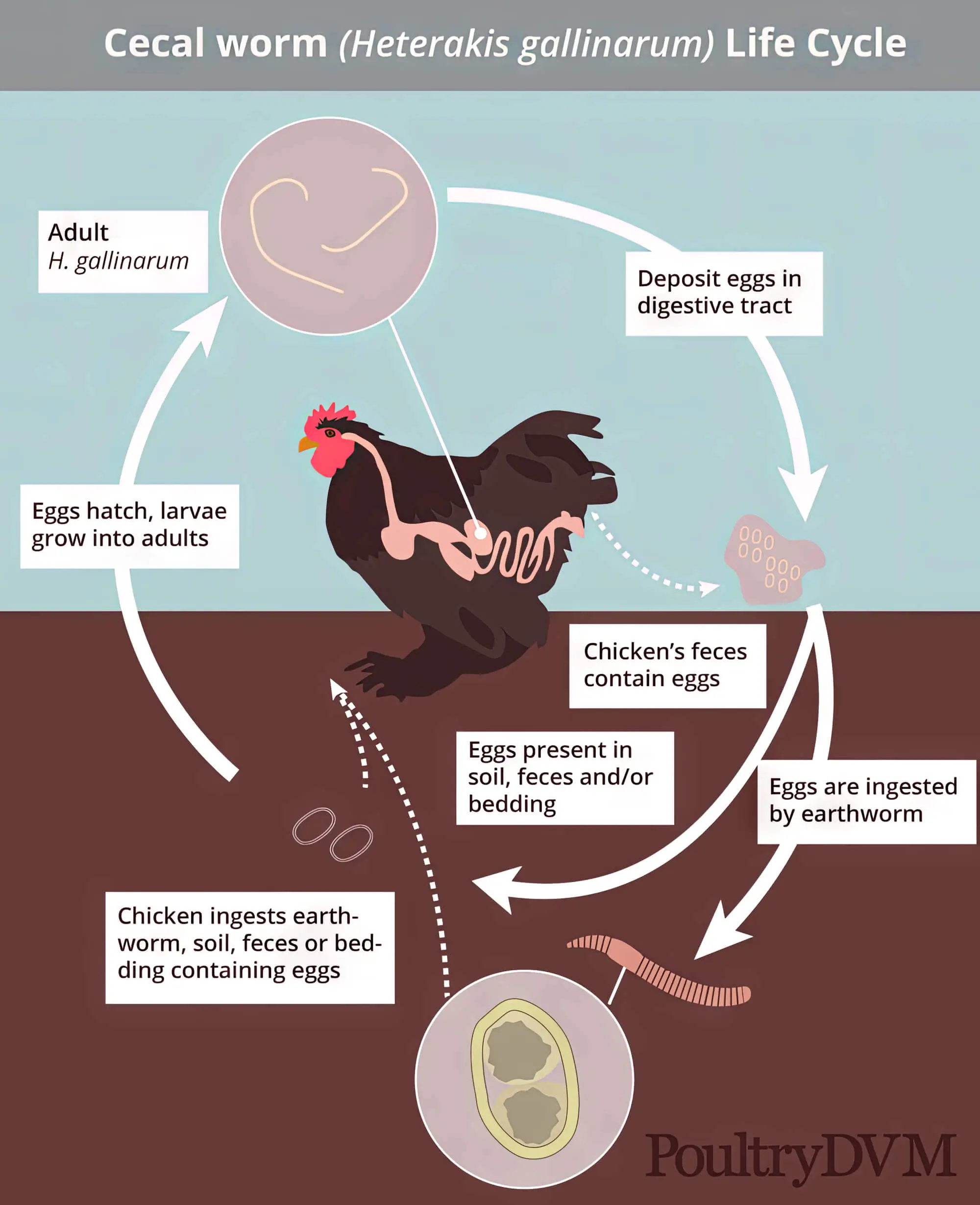
Chickens getting a worm infestation is common, usually from something they eat. These could be from consuming infested droppings or feeding on an insect carrying worm eggs.
Common insects where worm eggs thrive include snails, grasshoppers, earthworms, slugs, flies, etc. In most cases, healthy chickens can withstand a mild infestation and lay eggs as usual.
But when the egg-laying hens aren’t their usual self and appear stressed, the worm egg count could increase and overpopulate inside the chicken’s body. Backyard flocks can fall ill or die if the worm burden becomes too much.
How To Detect Poultry Worms?
Some of the common symptoms of a worm problem in poultry houses include the following -
- Abnormal droppings
- Worms in eggs
- Lethargy
- Weight loss
- Dirty vent feathers
- Wattles
- Worms in the throat and dropping
- Head shaking and coughing
- Gasping
- Low egg production
- Death
If you notice one or more symptoms, collect a sample of the droppings and take it to a licensed vet for a faecal float test to determine the worm’s burden. The test results should reveal the seriousness of the issue and the type of worm causing the infestation.
How To Treat Worms?
Chicken keepers can refer to the following techniques to prevent worm infestations, especially stopping adult worms from affecting young birds.
1. Natural Remedies
One of the best naturally-occurring remedies is grated garlic cloves in water, which can help prevent worm build-up. But it won’t stop the eggs from developing if the poultry is already infested.
Besides that, you can use apple cider vinegar to clean good, bad and immature worms from the gut. However, it would be best to use this technique sparingly to prevent further health issues.
Instead, you can opt for Diamol, a natural pest control, and this organic poultry wormer can be directly added to the chicken feed. It can help keep bantams, chickens, poultry, and chooks safe while positively impacting the direct life cycle of the birds.
2. Regular Cleaning
An essential aspect of maintaining proper chicken health is focusing on good animal husbandry. You will have to regularly clean the coop of backyard chickens, disinfect it and change the soil. This last step is particularly crucial when the chickens are kept in a run, so you must change every layer of soil.
But even then, it would be wise to change the free-range area when keeping chickens to prevent them from foraging in the same place. You should further ensure the poultry area is well-drained while adding fresh mulch or bark in muddy areas to create an acidic environment unsuitable for gizzard worms and other parasites.
3. Proper Diet
It would help to feed the chickens properly to prevent them from eating infected earthworms. It would be ideal for keeping Wormies Treats to just 5% of the daily diet without adding additional compounds that can dilute the quality.
Most importantly, don’t throw the feed on the ground to prevent contamination. Instead, clean the feeder regularly and add fresh, clean drinking water with a Poultry Gravity Drinker.
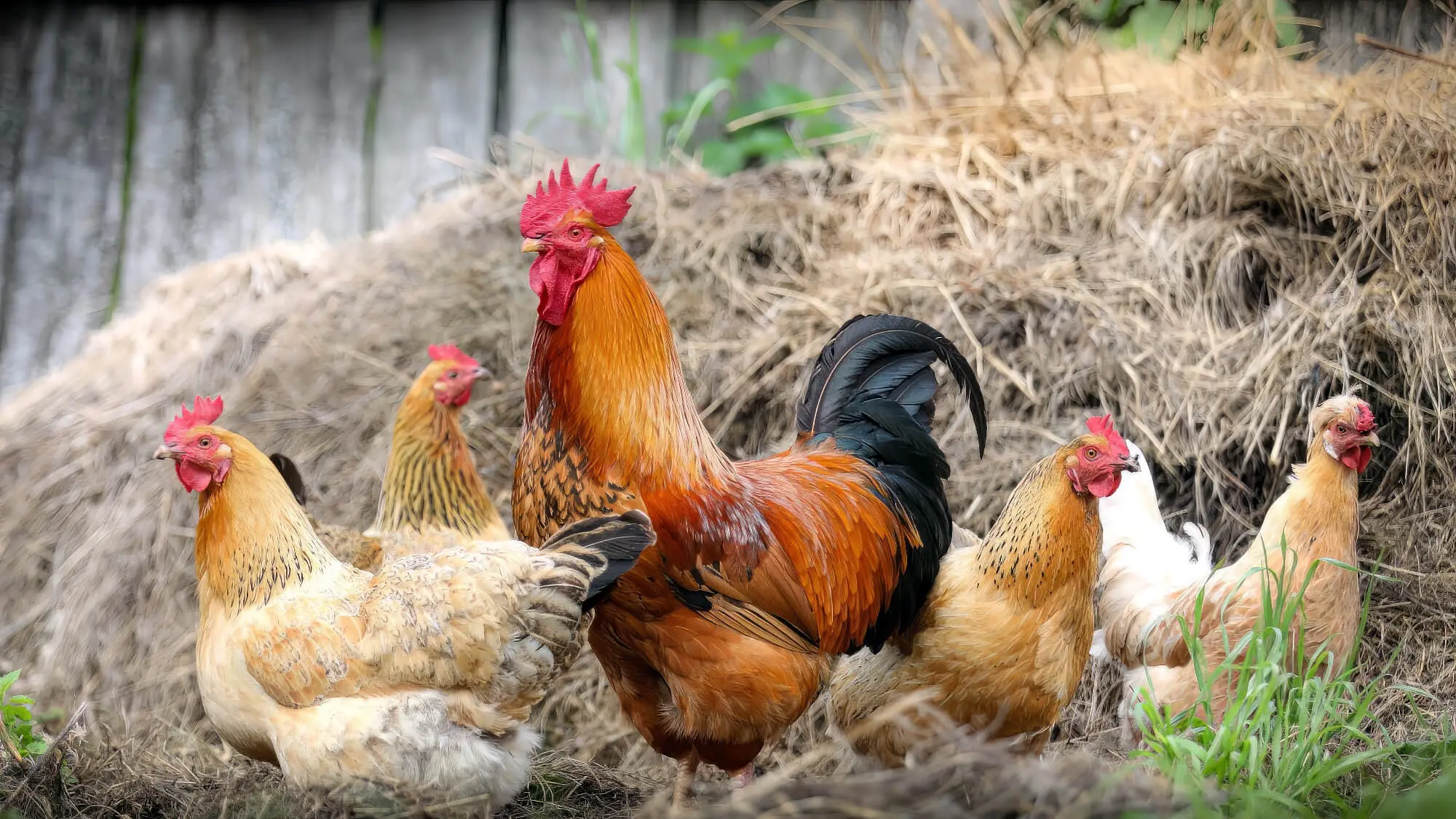
4. Droppings Board
We recommend using a droppings board underneath the roost to prevent waste from accumulating. You can remove overnight droppings in the morning to maintain a clean litter and quickly spot worms.
5. Reducing Stress
Another important factor is to reduce stress and help the birds build their immune system, which increases resistance to worms. For that, it’s crucial to maintain a sunny and dry yard by rotating the pens at regular intervals. When chickens are kept in the same area for several months, they are more susceptible to diseases, parasites and illnesses than properly pastured birds.
6. Contacting Professionals
Removing the litter also serves the purpose of breaking the parasites’ direct and indirect life cycles. You can also use sand in the coops, which isn’t conducive to parasitic growth, and well-maintained sand can be changed occasionally.
Also, contacting a government agency about chicken worming services or tips based on your area is always a good idea.
How Often Should You Worm Chicken?
Worming is essential for the birds’ health and should be done every 3-6 months or 2-4 times a year to prevent infestations. The best times for worming are spring and after summer when egg production drops.
But note that worming helps rid a chicken of infestations and doesn’t remove the parasites already on the coop floor. The problem is further compounded if there are intermediate hosts, such as slugs and earthworms wriggling about, for which you need a treatment plan.
This will help eliminate the worms that develop in the coming weeks. Usually, a worm life cycle lasts 2-8 weeks, so you must attack the problem before the eggs develop and the larvae hatch inside the chickens.

